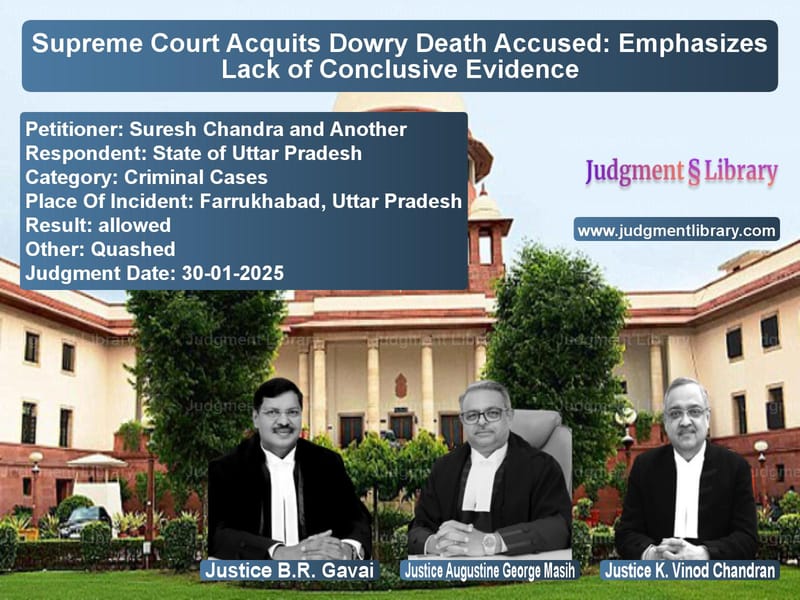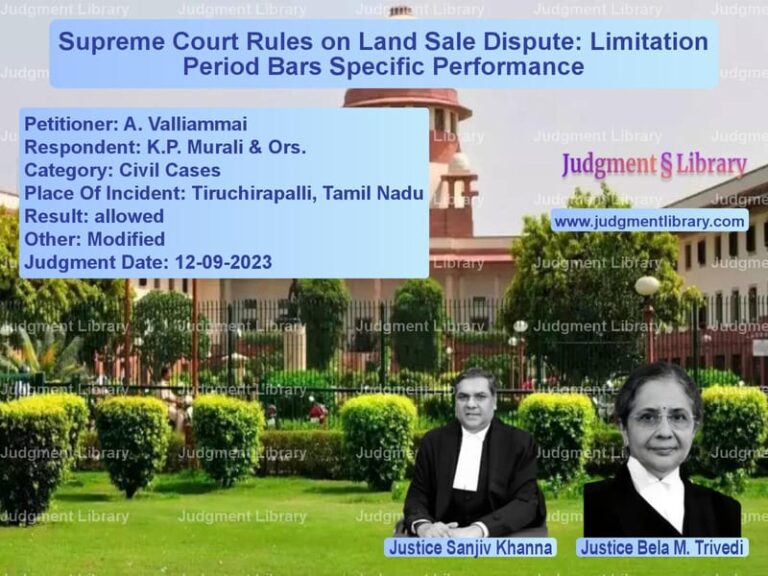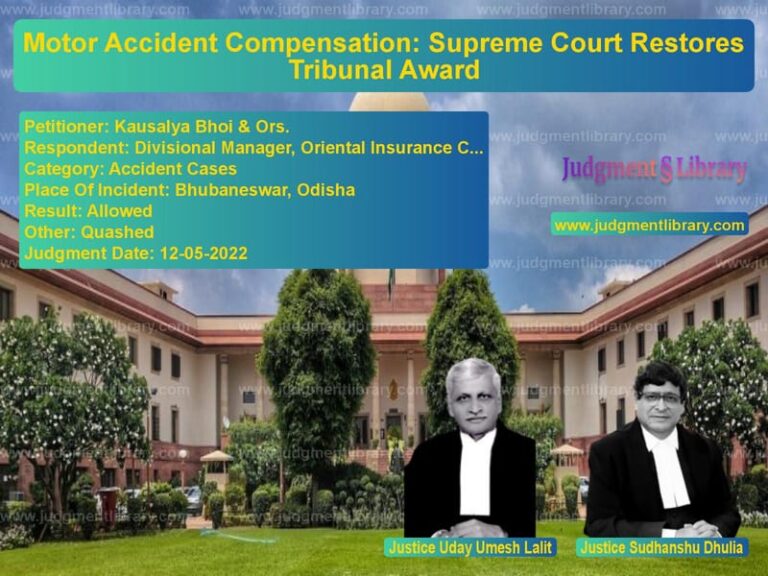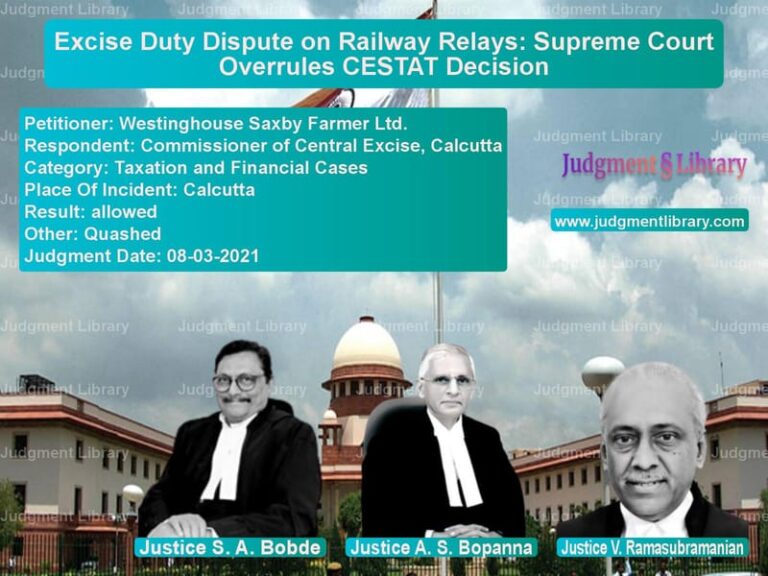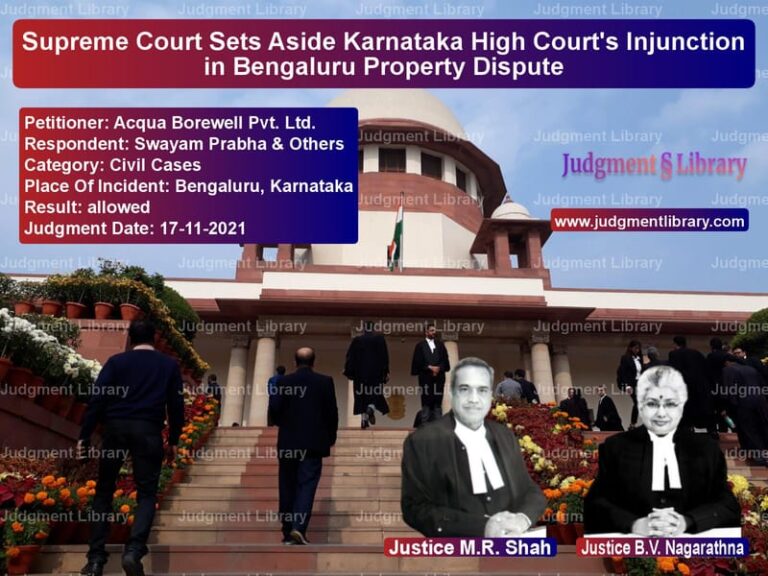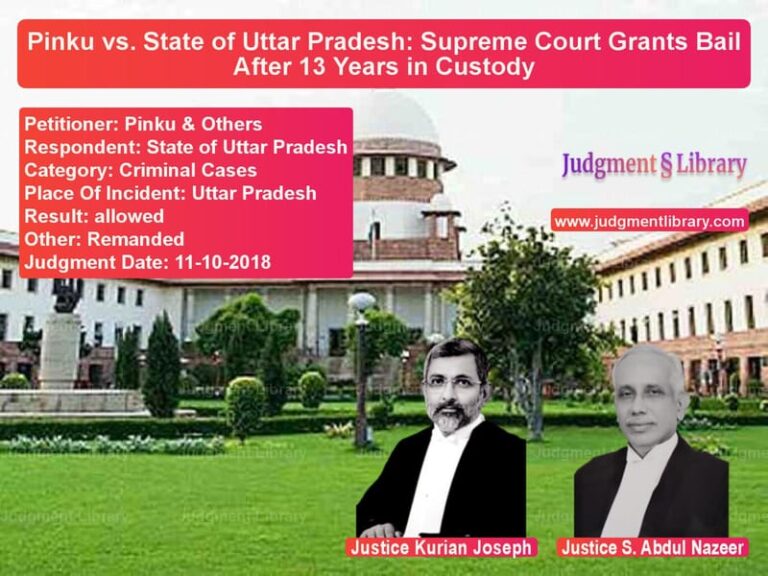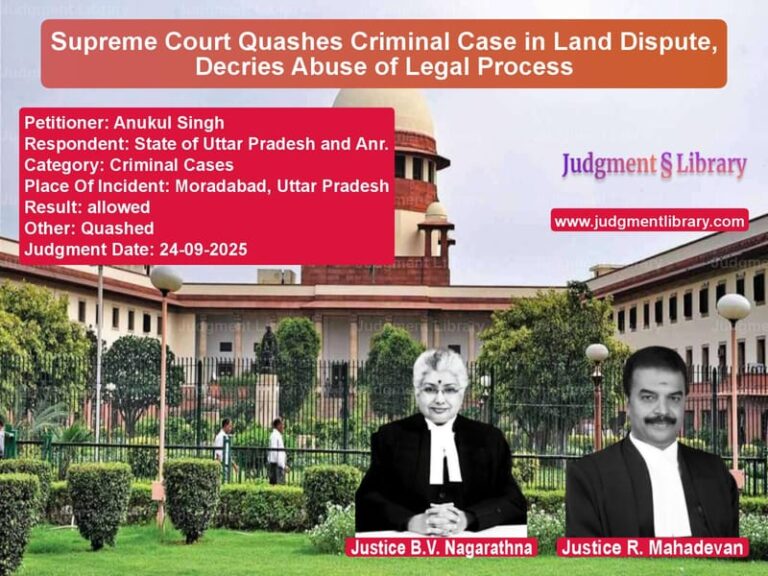Supreme Court Acquits Dowry Death Accused: Emphasizes Lack of Conclusive Evidence
In a significant ruling, the Supreme Court of India overturned the conviction of two accused in a dowry death case, emphasizing that conviction in criminal cases must be based on solid and irrefutable evidence. The Court held that the prosecution had failed to establish the guilt of the accused beyond a reasonable doubt, leading to their acquittal.
Background of the Case
The case revolved around the tragic death of a woman named Ram Dulari, who was found burned in her matrimonial home in Farrukhabad, Uttar Pradesh, on July 14, 1981. The prosecution alleged that she was harassed for dowry and ultimately killed by her in-laws. The victim’s father, Hari Narain, lodged a First Information Report (FIR) alleging that his daughter was subjected to harassment and dowry demands by her husband, Umesh Chandra, and other in-laws, including the appellants, Suresh Chandra and another accused.
The case was initially registered under Sections 302 (murder) and 149 (unlawful assembly) of the Indian Penal Code (IPC). During the trial, the prosecution presented evidence suggesting that the deceased had been mistreated for failing to meet dowry demands and was burned to death by the accused.
Legal Proceedings
- The Sessions Court convicted the accused under Section 302 IPC and sentenced them to life imprisonment.
- The High Court of Allahabad upheld the conviction in 2021.
- The appellants challenged the conviction before the Supreme Court, arguing that the case was based on mere conjectures and lacked substantive proof.
Arguments by the Petitioner (Suresh Chandra and Another)
- The appellants contended that the prosecution had failed to establish a direct link between them and the alleged crime.
- They argued that the house had twelve residents, but only six were charged without any rationale.
- The defense pointed out that the prosecution could not prove whether the death was homicidal or accidental.
- They also stated that no prior complaints of dowry harassment had been recorded before the alleged incident.
Arguments by the Respondent (State of Uttar Pradesh)
- The prosecution asserted that the deceased was continuously harassed and ultimately murdered by the accused.
- They emphasized that the accused fled the scene after the incident, indicating guilt.
- The prosecution claimed that the presence of the accused in the house at the time of the incident pointed towards their involvement.
Supreme Court’s Observations
- “For this Court to uphold the conviction of the appellants for the offence punishable under Section 302 IPC, the prosecution will have to prove beyond reasonable doubt that it is the appellants who have committed the offence.”
- “The burden to prove a case initially lies on the prosecution. Only if a prima facie case is made, can the burden shift to the accused under Section 106 of the Indian Evidence Act.”
- “In a case based on circumstantial evidence, there must be a chain of events so conclusive that it rules out any other possibility except the guilt of the accused.”
- “Suspicion, however strong, cannot take the place of proof beyond reasonable doubt.”
Key Legal Principles Applied
- The Court referred to its ruling in Sharad Birdhichand Sarda v. State of Maharashtra, which established the principles governing circumstantial evidence.
- The Court reiterated that every hypothesis except the guilt of the accused must be ruled out for conviction based on circumstantial evidence.
- The Court emphasized that while Section 113A of the Indian Evidence Act allows a presumption of abetment of suicide in dowry cases, it does not automatically warrant conviction without substantive proof.
Final Judgment
- The Supreme Court quashed the conviction and set aside the judgments of the trial court and the High Court.
- It ruled that the prosecution had failed to establish the guilt of the accused beyond reasonable doubt.
- The appellants were ordered to be released immediately unless required in other cases.
Conclusion
This ruling underscores the fundamental principle that criminal convictions must be based on clear and convincing evidence. The Supreme Court’s decision reaffirms the necessity of establishing a watertight case in criminal trials, particularly in matters of dowry-related offenses, where the burden of proof is crucial in securing justice.
The judgment highlights the necessity of ensuring that criminal law is not misused and that individuals are not convicted based on weak or circumstantial evidence. It also reinforces the importance of distinguishing between suspicion and substantive proof in criminal cases.
Petitioner Name: Suresh Chandra and Another.Respondent Name: State of Uttar Pradesh.Judgment By: Justice B.R. Gavai, Justice Augustine George Masih, Justice K. Vinod Chandran.Place Of Incident: Farrukhabad, Uttar Pradesh.Judgment Date: 30-01-2025.
Don’t miss out on the full details! Download the complete judgment in PDF format below and gain valuable insights instantly!
Download Judgment: suresh-chandra-and-a-vs-state-of-uttar-prade-supreme-court-of-india-judgment-dated-30-01-2025.pdf
Directly Download Judgment: Directly download this Judgment
See all petitions in Murder Cases
See all petitions in Bail and Anticipatory Bail
See all petitions in Judgment by B R Gavai
See all petitions in Judgment by Augustine George Masih
See all petitions in Judgment by K. Vinod Chandran
See all petitions in allowed
See all petitions in Quashed
See all petitions in supreme court of India judgments January 2025
See all petitions in 2025 judgments
See all posts in Criminal Cases Category
See all allowed petitions in Criminal Cases Category
See all Dismissed petitions in Criminal Cases Category
See all partially allowed petitions in Criminal Cases Category

